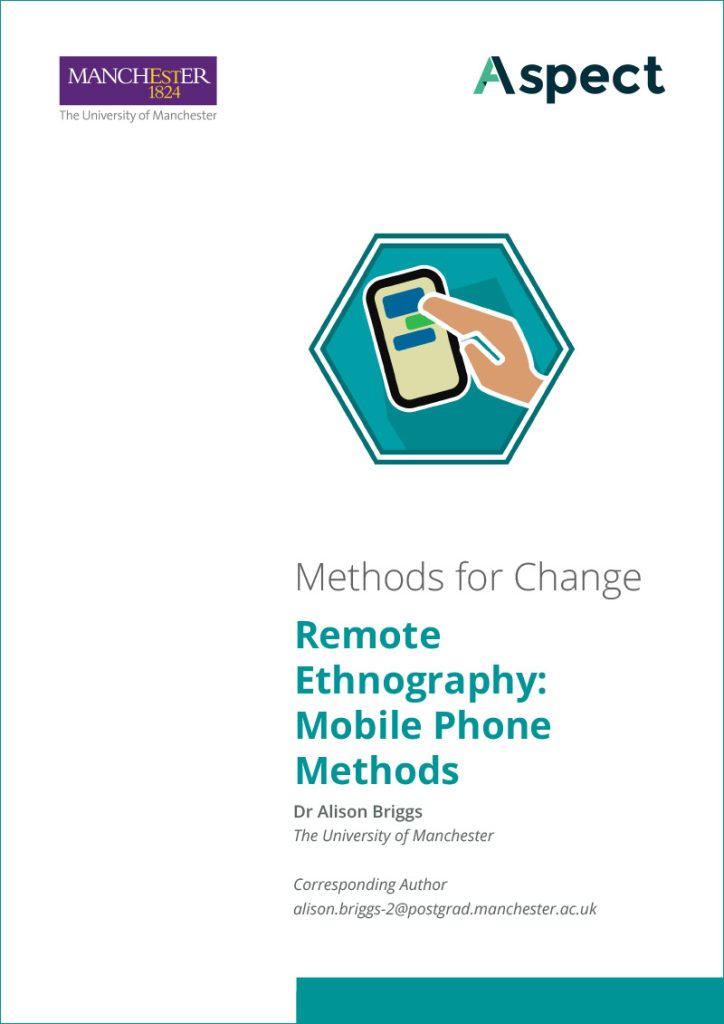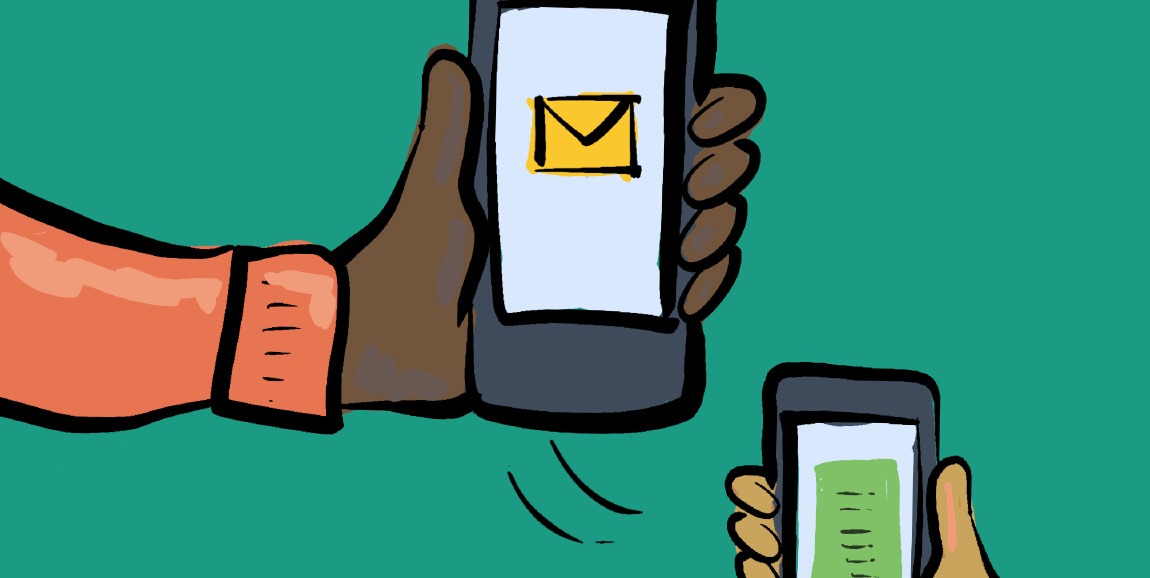Remote Ethnography utilises mobile phones to explore complex social issues ‘from a distance’ with individuals, families, organisations and community groups.
Due to their ubiquity in modern life, mobile phones enable researchers to carry out research in a way that is not bounded by place and time, especially in contexts where presence is not always appropriate. In doing so, Mobile Phone Methods open up otherwise difficult-to-access spaces like participants’ homes (with careful ethical consideration), as well as the mundane, everyday spaces and ‘everynight mobilities’ of participants’ lives (Wilkinson, 2020). Specifically, the method involves inviting participants to use a mobile phone to record aspects of their lives in which the researcher is interested, via text messaging, participant-generated photos and if appropriate, voice notes. It can also involve using the mobile phone to conduct remote interviews via WhatsApp. Another example of their utility can be found in the Methods for Change Phase 1 collection: Mobile Visual Methods.
The centrality of mobile phones to everyday life and their importance for being connected in contemporary society – for instance, socio- economic participation, accessing welfare entitlements and maintaining social relationships (Hall, 2022) – makes them particularly well suited to Remote Ethnography. Specifically, they offer the opportunity for ‘ethnography by proxy’ (Bloustein and Baker, 2003), or researching remotely, and are particularly useful when more traditional, face-to- face methods are not open to the researcher. Since they host multiple applications, mobile phones can be used as part of ethnographic research to facilitate in-depth understanding of everyday livedexperiences without the need for the researcher to be physically present. Ethnographic approaches often entail long-term, immersive engagement with people, organisations and communities to gain better understanding of specific issues, and require the researcher to build trusting relationships with participants. They encompass multiple data collection techniques such as observation, interviewing, go-alongs and photography, and facilitate detailed exploration of the complexity and messiness of everyday life in order to provide rich insight into participants’ lives. In such research, adopting a slow-paced, gentle approach that is sensitive to the needs and experiences of participants is critical to this method.
The mobile phone helps researchers to take this kind of approach because of their flexibility as a research tool. For instance, face-to- face encounters and/or written activities such as diary keeping may cause some participants significant anxiety, and they may feel more comfortable in being able to text, photograph, or record a voice note to communicate something.





